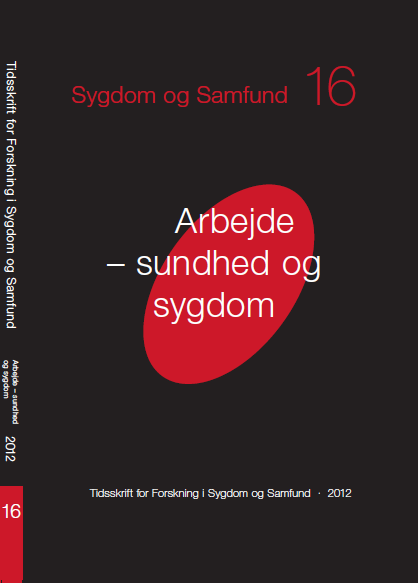Publiceret 2012-07-05
Citation/Eksport
Resumé
This article discusses the obligatory job activation measures directed toward workers receiving temporary sickness benefits, a policy that took effect on 1. January 2010. The requirement that workers on sick leave be subject to activation measures so they can return to work more quickly indicates a change in attitude about how we become well again. The purpose of this article is to describe and analyze how social workers in the Danish municipality of Aalborg work with activation of workers on sick leave. It describes how they manage the professional and ethical dilemmas they experience due to the specific activation requirements directed toward workers on sick leave. The problem takes its point of departure in our lack of specific knowledge about how the municipal job counselling centres manage the activation of those receiving sick leave benefits.
This article is a part of a pilot project, and therefore based on a limited amount of data. The pilot project should be seen as a preliminary phase of a larger qualitative study of the methodological challenges in the sick leave sector. The article is based on a focus group interview with five social workers in a job centre in the municipality of Aalborg. The results of the pilot study have been surprising. Even though there are professional and ethical dilemmas facing the social workers in the job centre, these are of less importance than the New Public Management based restructuring that has been taking place in the Danish public sector for nearly thirty years. Regulatory constraints, budget controls and standardization of the methods of social work are experienced by the social workers as the greatest obstacle to carry out professionally qualified social work. The requirements connected with regulations, standardized methods and budget controls have placed the social workers in a field of tension between politics and their clients’ needs. Hence, the professional social sector workers find themselves compelled to manoeuvre in an organizational context that places contradictory demand on their activities.

